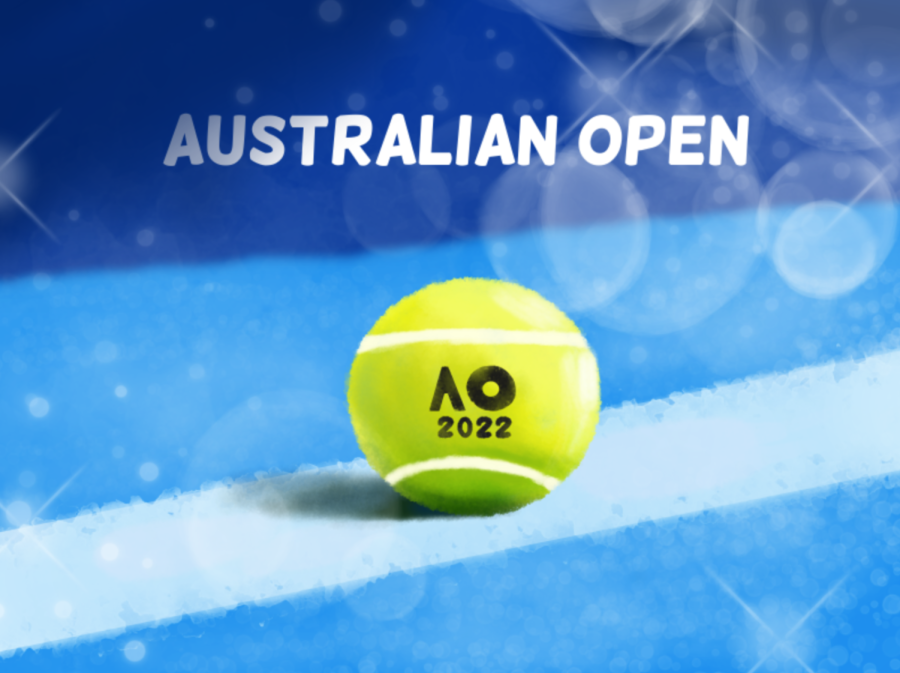Nadal wins Australian Open with “unbelievable” last match
February 22, 2022
The 2022 Australian Open was nothing short of exciting, with players from 24 countries competing to become the champion of the court. There was skill everywhere on the court, with tough plays and perilous tiebreakers. However, through sweat, injury, and possibly the greatest comeback in all of tennis, Rafael Nadal was able to win his 21st Grand Slam title.
Rafael Nadal is a Spanish professional tennis player, currently ranked No. 5 in the world by the Association of Tennis Professionals (ATP), and he has managed to be No. 1 for a total of 209 weeks. Nadal has also broken several records, as he has the most men’s singles Grand Slam titles, surpassing Roger Federer and Novak Djokovic’s 20 Grand Slam titles with his 21 titles. Plus, he holds the record for the longest passage of time between a player’s first and second titles at the same tournament, as he won his last Australian Open in 2009. Nadal is also known for “having two personalities,” as he rallies on the court with extreme intensity, utilizing an unconventional and effective forehand. But off the court, Nadal is described to be friendly and a “normal guy.”
Despite his many achievements at the Australian Open, what is just as important are the hardships and obstacles Nadal has had to overcome to reach this level. One that almost kept him off the court was his Mueller-Weiss Syndrome, an untreatable and rare disease that deforms bones in the foot. Even worse, it targets the bone that is essential for making the foot pivot and bend, something that a tennis player needs. Nadal made it clear that he may not have gone to the Australian Open but decided to go while simply dealing with the pain. What may be more surprising is that Nadal has been having this condition since 2009, which means that he was winning Grand Slam titles despite his injury for over 10 years.
To add to his medical troubles, skilled players like No.1 Novak Djokovic, the only player to beat Nadal in all four Grand Slam tournaments to date, would become another issue in the tournament. However, Djokovic would be deported from Australia due to him refusing to get the COVID-19 vaccine and thus unable to play in the Australian Open.
When asked about Federer’s deportation, Nadal told BBC Sport that he thought the situation was terrible, but stated that Federer knew the consequences of not being vaccinated.
“Of course, I don’t like the situation that is happening. In some way, I feel sorry for him. But at the same time, he knew the conditions a lot of months ago, so he made his own decision.” Nadal said.
Nadal would then proceed to defeat his first 6 opponents, with some difficulty against Shapovalov and Berrettini. But the real challenge lay just ahead in the finals against Daniil Medvedev, who ranked 3 places higher than Nadal in the ATP. Medvedev found early success beating Nadal 6-2 in the first set, and winning a 6-point tiebreaker in the second set. If Nadal lost another set, Medvedev would win the entire match. But Nadal was determined to stop his opponent, and completely wiped Medvedev on the final games of the third and fourth sets, making the match 2-2. The final game would decide who would be taking home a Grand Slam title. While it was a close match, Nadal would win 7-5 with powerful shots, defense, and serves. On Jan. 30, Nadal stood tall as the champion of the Australian Open.
“It was one of the most emotional matches in my tennis career… For me, it’s just amazing,” Nadal said to the tournament audience. “…one month and a half ago, I did not know if I would be able to be back on the tour and play tennis again…you don’t really know how much I fought to be here.”


